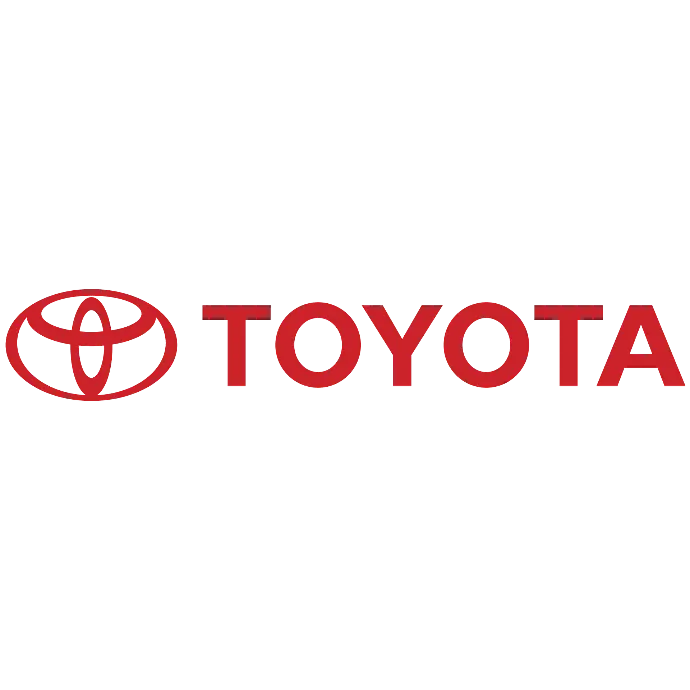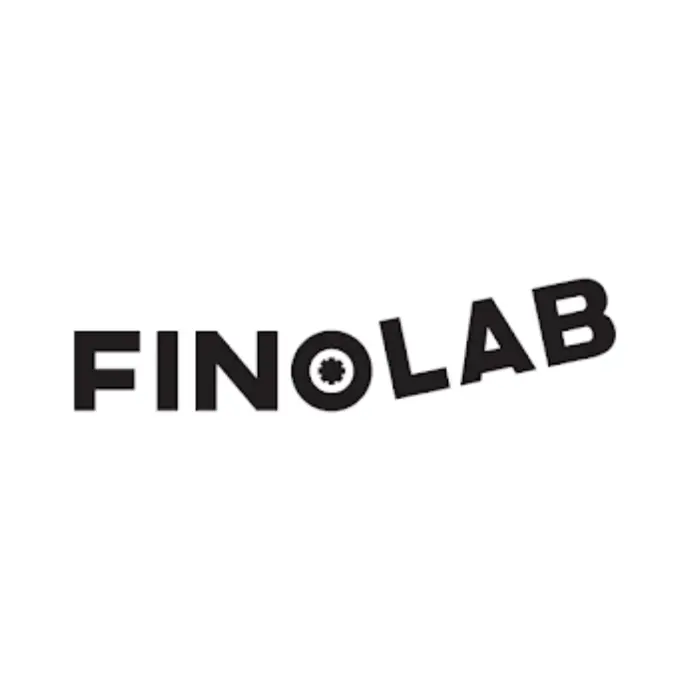Dominate the Future of Search: Mercury's LLM SEO Service
Stay visible & trusted in the age of AI search. Mercury's LLM SEO Service optimizes your online presence for ChatGPT, Gemini, Grok & other AI
Contact usIs Your Business Ready for the AI Search Revolution?
The way customers find information online is changing faster than ever. Millions are turning away from traditional search results and towards AI chatbots like ChatGPT, Google's Gemini, Grok, Claude AI, and Bing Chat for direct answers and recommendations. They're asking: "What's the best [your service/product]?" or "Recommend a [provider type] near me."
If your business isn't visible within these AI-generated answers, you risk becoming invisible. Traditional SEO is no longer enough. Welcome to the era of Large Language Model (LLM) search – are you prepared to compete?


The Visibility Gap: Why Traditional SEO Falls Short in the Age of AI
Traditional SEO focuses on ranking your website links. LLMs focus on providing direct, synthesized answers, often pulling information from numerous sources without users ever clicking a link.
This creates critical challenges:
- Direct Answer Competition: You're no longer competing for a spot on Page 1; you're competing to be part of the definitive answer the AI provides.
- New Ranking Signals: LLMs evaluate information differently, prioritizing factors like semantic relevance, demonstrated authority (E-E-A-T), brand reputation across the web, and consistency of information more heavily than just keywords and backlinks.
- Risk of Invisibility: If the AI doesn't perceive your brand as relevant, authoritative, and trustworthy based on its training data and web analysis, it simply won't recommend you.
Why an AI search and discovery strategy is critical.
Over 50% decrease in brands’ organic search traffic by 2028 as consumers embrace generative AI-powered search.
80% of consumers now rely on AI-written results for at least 40% of their searches, reducing organic web traffic by 15 to 25%.
Introducing Mercury's LLM SEO Service: Your Partner in AI Visibility
Mercury Technology Solution bridges the gap between your business and the future of search. Our comprehensive LLM SEO Service (also known as Generative AI Optimization or GAIO) with our proprietary A.C.I.D. Framework is designed to enhance your online presence, ensuring AI models recognize and recommend your brand when potential customers ask relevant questions.
We go beyond traditional SEO to influence the factors that matter most to AI:
From Link-Centric to Answer-Centric Optimization
While many agencies remain focused on merely acquiring backlinks, Mercury's LLM SEO shifts the paradigm to answer relevance. We optimize your content not just for clicks, but to be the definitive, cited source in AI-generated answers – a crucial distinction in the modern search environment.
Deep Relevance Analysis & Content Strategy
We identify the specific conversational queries and user intents relevant to your business in the AI landscape.
We help you craft and optimize content (website copy, FAQs, blog posts, knowledge base articles) that directly answers these queries in a clear, authoritative, and AI-friendly format.
Beyond Keywords: Semantics & Brand Authority for AI
Traditional SEO often over-indexes on keyword density. Mercury's approach is rooted in understanding semantic relationships and holistic brand authority (E-E-A-T). This means your content is recognized by LLMs as trustworthy and authoritative, leading to recommendations even for complex, conversational queries that simple keyword matching would miss. We identify opportunities to showcase your Experience, Expertise, Authoritativeness, and Trustworthiness (E-E-A-T) – critical signals for LLMs, especially in sensitive sectors like finance and healthcare. Strategies include highlighting credentials, securing mentions in authoritative publications, optimizing expert profiles, and ensuring content accuracy.
Reputation Monitoring & Enhancement
LLMs heavily weigh reviews and overall online sentiment. We help you monitor your brand's reputation across relevant platforms (review sites, forums, social media). We develop strategies to encourage positive reviews and manage feedback effectively, building the social proof AI relies on.
Strategic Brand Mention & Citation Building
Visibility requires being talked about. We devise digital PR and content strategies to increase positive mentions of your brand across relevant, credible websites, news sources, and industry discussions.
Data Consistency & Structured Data Implementation
We ensure your core business information (Name, Address, Phone, Services) is consistent across the web and implement relevant schema markup to help search engines (and indirectly, AI) understand your offerings.
Ongoing AI Monitoring & Adaptation
The AI landscape evolves constantly. We continuously monitor how LLMs perceive your brand, track your visibility in AI outputs, and adapt your strategy accordingly. Unlike firms that react to Google algorithm changes, Mercury continuously monitors how various LLMs perceive your brand and adapt our strategies in real-time. This proactive stance ensures your brand remains resilient and visible in an ever-evolving AI search landscape.
Frequently Asked Questions about E-E-A-T & LLMs:
Why is E-E-A-T more critical for LLMs than traditional SEO?
LLMs aim to provide definitive, trustworthy answers. They actively evaluate the credibility of sources to avoid generating inaccurate or misleading information. A strong E-E-A-T profile signals to the AI that your content is a reliable, expert-backed source, increasing the likelihood of direct citations and recommendations in AI outputs.
How does Mercury practically demonstrate E-E-A-T for our brand?
Our approach includes: collaborating with industry-recognized experts for content creation, strategically securing high-authority brand mentions, implementing author schema markup, and auditing your content for accuracy and originality. We focus on building a robust digital footprint that validates your expertise across the web.
10,000+ companies run LLM SEO. Join the 40+ Global Clients We've Helped. Secure Your Future in AI Search Today.
Don't wait until your brand becomes invisible in the fastest-growing search paradigm. Take proactive steps to ensure AI recommends you.
Our Data-Driven LLM Optimization Process
Discovery & Audit:
We analyze your current online presence, identify target queries, assess your E-E-A-T signals, and benchmark against competitors in the LLM space.
Strategic Roadmap:
We develop a tailored LLM SEO strategy outlining content recommendations, authority-building tactics, reputation management actions, and technical adjustments.
Implementation:
Our team works with yours to implement the strategy, optimizing content, building citations, managing reviews, and refining technical elements.
Monitoring & Reporting:
We track your visibility in key LLM outputs, monitor brand mentions, and provide regular reports on progress and evolving AI trends.
Iteration & Refinement:
Based on performance data and the changing AI landscape, we continuously refine your strategy for sustained visibility.
Client Success Stories



Why Partner with Mercury for LLM SEO?
- Pioneering Expertise: Mercury's A.C.I.D. Framework for AI Visibility. We are at the forefront of understanding and optimizing for AI-driven search since 2022. Unlike traditional agencies relying on outdated SEO tactics, our proprietary A.C.I.D. Framework (Authority, Citations, Infrastructure, and Dynamic Maintenance) is purpose-built to ensure your brand is not just found, but actively recommended by leading LLMs like Google AI Overview, ChatGPT and Gemini.
- Holistic Approach: We combine technical SEO, content strategy, digital PR, and reputation management for comprehensive LLM optimization.
- Data-Driven Strategy: Our recommendations are based on analysis of LLM behavior, competitor research, and your unique business goals.
- Future-Focused: We help you build a sustainable digital presence that thrives not just today, but in the AI-powered future.
- Transparent Partnership: We work closely with you, providing clear insights and measurable results.
- Your AI Visibility Partner in Key Global Markets: With dedicated teams and localized market intelligence in Hong Kong, Tokyo, Taipei, Singapore, and the UK, Mercury understands the nuances of AI search behavior specific to these regions. Whether you need to dominate conversational search in the highly competitive London market or build trust in the burgeoning Tokyo AI landscape, our global presence ensures localized impact.
Is Your Content E-E-A-T Ready?
Get your free analysis in seconds and find out how to improve your rank, brand visibility on GAIO, AEO and trustworthiness.
Thought Leadership from the Forefront of AI Search
Stay ahead with Mercury's in-depth research and strategic insights into the evolving world of LLM SEO.
- The Great Filter: A CEO's Guide to Winning in the Era of AI Overviews: "Understand the monumental shift in search results and how to ensure your brand thrives, not disappears, in Google's new AI Overviews."
- The 7-Layer Prompt Formula: Our Blueprint for Content That Dominates AI Search: "Discover the proprietary methodology we use to engineer content for maximum AI recognition and citation."
- GEO, LLM SEO, AEO... Or Just SEO Evolved?: "Don't get bogged down by the latest acronym. Whether you call it LLM SEO, GEO, AEO, or just plain SEO, the strategic imperatives remain remarkably consistent."
Your Questions About LLM SEO, Answered
The digital landscape is evolving. Are you ready? As users increasingly turn to AI chatbots like ChatGPT, Gemini, and Grok for information, a new field of optimization has emerged: Large Language Model Search Engine Optimization (LLM SEO), also known as Generative AI Optimization (GAIO) or Answer Engine Optimization (AEO). At Mercury Technology Solutions, we're at the forefront of this shift, helping businesses like yours remain visible and trusted in this AI-driven search era.
This FAQ will break down everything you need to know about this critical new approach to online visibility.
What exactly are LLM SEO, GAIO, and AEO?
- LLM SEO (Large Language Model Search Engine Optimization): This refers to the process of optimizing your brand's online presence, content, and website to be favorably recognized, understood, and ultimately featured in answers generated by Large Language Models. These include AI tools like ChatGPT (with Browse capabilities), Perplexity AI, Claude, Gemini, and AI-powered browser tools. The goal isn't about traditional rankings on a Search Engine Results Page (SERP), but direct inclusion and citation within the AI's response.
- GAIO (Generative AI Optimization): This is a broader term that Mercury Technology Solutions uses, encompassing LLM SEO. It focuses on the comprehensive optimization of your digital footprint for how Generative AI models, including LLMs, evaluate and synthesize information to create new content or provide answers.
- AEO (Answer Engine Optimization): This term emphasizes the shift from search engines (which provide links) to answer engines (which provide direct answers, often synthesized from multiple sources). AEO strategies aim to make your content the most reliable and clear source for these AI-driven answer engines.
How do LLMs decide what information or brands to include and cite in their answers?
LLMs prioritize content and sources that demonstrate:
- Clarity and Conciseness: Information should be easy to understand and directly answer potential questions.
- Contextual Relevance: Content needs to be highly relevant to the user's query and rich in entities (like your brand name, product features, and industry categories).
- Authoritativeness and Trustworthiness (E-E-A-T): This is paramount. LLMs look for signals of Experience, Expertise, Authoritativeness, and Trustworthiness. Mercury's GAIO service focuses heavily on E-E-A-T amplification.
- Structured Data: Information that is well-organized and uses schema markup is easier for LLMs to parse and understand.
- Citation by Other Trusted Sources: Mentions and citations on platforms like Reddit, Quora, Product Hunt, industry forums, and reputable publications act as validators.
- Data Consistency: Accurate and consistent information about your business (like Name, Address, Phone number - NAP) across the web is crucial.
What types of content or web pages work best for LLM SEO / GAIO?
Pages that are structured to provide direct answers or clear explanations tend to perform well. Consider:
- Comprehensive FAQ pages
- Detailed "How-to" guides and tutorials
- In-depth comparison pages (e.g., "Our Product vs. Competitor X")
- Glossaries of industry terms
- Use-case specific pages demonstrating your product/service in action
- Help documentation and knowledge bases
- Listicles (e.g., "Top 5 Benefits of X")
The more "explainable" and quotable your content is, the higher the chance of it being used by an LLM. Mercury's LLM-SEO service includes a deep relevance analysis and AI-focused content strategy to optimize such content.
How can I tell if AI chatbots are "crawling" or accessing my website?
You can check your server logs for requests from AI-specific user agents, such as:
- GPTBot (OpenAI)
- ClaudeBot (Anthropic)
- PerplexityBot (Perplexity AI)
- Google-Extended (Google’s user agent for accessing data to train its generative AI models)
- CCBot (Common Crawl)
Another method is to directly test prompts related to your industry or brand on various AI platforms (like Perplexity AI or ChatGPT with Browse enabled) and see if your website or content is cited as a source. If you're not appearing, your content isn't being "read" or considered by these AI.
Is LLM SEO / GAIO replacing traditional Google SEO?
Not entirely, at least not yet. Traditional SEO remains crucial for visibility on search engines like Google. However, LLM SEO/GAIO is rapidly gaining importance, especially for informational and bottom-of-the-funnel queries. Users are now directly asking AI:
"What are the top CRM tools with API integration?"
"Show me tools similar to [Product Y] suitable for solo entrepreneurs."
They are increasingly trusting the direct answers provided by LLMs, not just the first page of Google results. Mercury's LLM-SEO services are designed to complement your traditional SEO efforts, creating a more robust overall visibility strategy.
What is the main difference between traditional SEO and LLM SEO (GAIO)?
The primary difference lies in the objective. Traditional SEO focuses on achieving a high ranking in a list of "blue links" on a search engine results page. GAIO, on the other hand, focuses on making your brand an integral, citable source within the AI's generated answer itself.
Our approach recognizes that while the two are complementary, they require different strategies. GAIO involves a Deep Relevance Analysis of conversational queries and building an Al-Focused Content Strategy designed for AI comprehension. It also includes Comprehensive Online Reputation Monitoring and Strategic Brand Mention & Citation Building, as AI models learn from a wide array of signals across the web, not just traditional ranking factors.
Do traditional SEO metrics like Domain Authority or backlink count directly impact LLM SEO?
Not in the same direct way they impact Google rankings. LLMs don't "weigh" Domain Authority or the sheer number of backlinks as primary factors. Instead, they prioritize the semantic clarity of your content, its structure, and the familiarity or trustworthiness of the source. A well-structured blog post might not rank on page one of Google but could still be referenced in multiple AI-generated answers if it clearly explains a concept. However, high-quality backlinks from authoritative sites can contribute to overall E-E-A-T signals, which are important for LLMs.
How can I track traffic or visibility from LLMs?
Currently, there isn't a perfect, dedicated tool that tracks LLM-driven traffic or answer inclusions with precision. This is an emerging area. However, you can start to triangulate this by:
- Monitoring direct traffic spikes that don't correlate with other marketing activities.
- Tracking brand mentions and citations across the web, especially on forums and Q&A sites often used by LLMs.
- Observing referral traffic from AI tools if they provide clickable source links.
- Keeping an eye on leads or queries that mention finding you through an AI chatbot.
Mercury's LLM-SEO service includes continuous AI monitoring and adaptive optimization to stay ahead of these tracking challenges and the evolving AI landscape.
What are the key strategies to optimize my content for LLMs and GAIO?
Mercury Technology Solutions’ LLM-SEO (GAIO) service employs a multifaceted approach:
- Deep Relevance Analysis & AI-Focused Content Strategy: We identify conversational queries your audience uses and optimize your website content, FAQs, and knowledge bases to provide clear, authoritative, and AI-friendly answers.
- E-E-A-T Amplification (Experience, Expertise, Authoritativeness, Trustworthiness): We implement strategies to robustly showcase your credentials, expert profiles, client testimonials, case studies, and ensure factual accuracy across your digital presence.
- Comprehensive Online Reputation Monitoring & Enhancement: We monitor brand sentiment across reviews, forums, and social media, deploying strategies to encourage positive feedback and address concerns.
- Strategic Brand Mention & Citation Building: Our approach aims to increase positive and credible mentions of your brand through digital PR, content partnerships, and ensuring your presence on relevant industry platforms.
- Data Consistency Verification & Structured Data Implementation: We ensure your core business information (Name, Address, Phone - NAP) is accurate and consistent everywhere online. We also implement schema markup and other structured data formats to help LLMs better understand your content.
- LLM SEO Audit & Competitive Benchmarking: We analyze your current visibility in LLM outputs, assess your E-E-A-T signals, and benchmark your performance against competitors.
- Write Like an Answer, Not Just a Blog Post: Focus on clarity, directness, and structuring content in a way that's easy for an AI to quote.
- Ensure Crawlability: Make sure AI bots can access and read your site content.
Does the frequency of users asking similar questions (prompts) that lead to my content help visibility?
Yes, potentially. If users repeatedly ask AI chatbots questions where your content provides a valuable and relevant answer, and if users engage positively with answers that cite your brand (e.g., by finding the information useful), it can reinforce your relevance for those types of queries over time. This "prompt visibility" can become a compounding asset.
What role do platforms like Reddit, Quora, G2, and other forums play in LLM SEO?
These platforms play a HUGE role. LLMs often heavily cite structured, trusted third-party sources because they are seen as "semantic validators." This includes:
- Relevant Reddit threads with detailed discussions.
- Product Hunt launch pages and discussions.
- Review sites like G2, Capterra, and TrustRadius.
- Glossaries and detailed Q&A sections on respected SaaS blogs or industry forums.
Having a positive and informative presence on these platforms, with mentions of your brand and products in relevant contexts, can significantly boost the likelihood of LLMs citing you. Mercury's service includes strategies for enhancing your brand's presence and reputation on such platforms.
Can LLM SEO / GAIO be "gamed"?
Not easily in the long run, and it's not advisable. LLMs are continuously learning and becoming more sophisticated at identifying manipulative tactics. Genuine value, clarity, and trustworthiness are key. Success is earned through:
- High-quality, well-structured content that genuinely answers user questions.
- Smart, natural placement of citations and mentions on trusted platforms.
- Achieving true relevance at the prompt level.
- Building a community and encouraging organic discussions about your brand on external platforms.
Think like you're building a comprehensive, trustworthy knowledge base for your industry, not just trying to rank for keywords.
Can you guarantee I'll be mentioned by ChatGPT?
Q: Can you guarantee I'll be mentioned by ChatGPT?
A: No one can guarantee specific rankings or mentions in LLMs, as their algorithms are complex and constantly evolving black boxes. However, our service significantly increases your probability of being recommended by focusing on the known factors that influence AI outputs: relevance, authority, reputation, and widespread positive mentions.
What do you mean by "LLM in SEO"? What is LLM SEO?
"LLM SEO," or what we at Mercury Technology Solutions refer to as Generative AI Optimization (GAIO), is the strategic process of ensuring your business remains visible and trusted in the new era of AI-driven search. As users increasingly turn to AI chatbots like ChatGPT, Gemini, and others for answers, our GAIO service optimizes your entire online presence for how these Large Language Models evaluate information. The goal is to enhance your brand's perceived relevance, authority, and data consistency to increase the likelihood that AI will recognize, trust, and ultimately recommend your business in its answers.
Will specialized tools emerge to fully track LLM SEO performance?
Yes, this is an anticipated development. The industry is still in its early stages, but we expect to see more sophisticated AI visibility dashboards that can monitor:
- "Prompt rankings" or frequency of inclusion for specific queries.
- Percentage of answer inclusion across different LLMs.
- Frequency and quality of citations.
- LLM-specific traffic reports (where possible).
For now, early adopters of comprehensive GAIO strategies will be the early winners.Great stories have a personality. Consider telling a great story that provides personality. Writing a story with personality for potential clients will assist with making a relationship connection. This shows up in small quirks like word choices or phrases. Write from your point of view, not from someone else's experience.
Great stories are for everyone even when only written for just one person. If you try to write with a wide, general audience in mind, your story will sound fake and lack emotion. No one will be interested. Write for one person. If it’s genuine for the one, it’s genuine for the rest.
Which LLM is best for SEO? How does Mercury's service optimize for different AI models?
There is no single "best" LLM for SEO, as each model (ChatGPT, Gemini, Claude, etc.) has its own unique way of processing information and is constantly evolving. A truly effective strategy must be holistic and platform-agnostic. Our Mercury LLM-SEO (GAIO) service is built on the principle of Continuous Al Monitoring & Adaptive Optimization. Rather than focusing on a single LLM, we focus on building universal signals of trust and authority that all models value. This includes:
- E-A-T Amplification: We implement strategies to showcase your real-world Experience, Expertise, Authoritativeness, and Trustworthiness.
- Data Consistency: We ensure your core business information is accurate and consistent across the web.
- Reputation Monitoring: We monitor sentiment across forums, reviews, and social media to manage your brand's reputation.
By strengthening these foundational pillars, we make your brand a trusted entity that all AI models are more likely to cite, regardless of their individual algorithmic differences.
What is the ultimate benefit of investing in a service like Mercury's LLM-SEO (GAIO)?
The ultimate benefit is to future-proof your business and secure your place in the new landscape of digital discovery. By investing in GAIO, you will:
- Enhance Your Visibility in AI-Generated Answers: This increases the chances of your brand being featured or recommended directly to users with high-intent questions.
- Connect with the Future of Search: You will effectively reach the growing user base that relies on AI for recommendations and initial discovery.
- Build Deeper Trust and Credibility: Our focus on E-A-T and reputation management benefits not only how AI perceives your brand, but also how human users trust it.
- Gain a Competitive Edge: This strategy positions you ahead of competitors who are slow to adapt to the reality of AI-driven search.
- Mitigate the Risk of AI Invisibility: You proactively address the risk of being excluded from the AI-generated answers that are becoming a primary source of information for consumers.Website may use cookies to personalize and facilitate maximum navigation of the User by this site. The User may configure his / her browser to notify and reject the installation of the cookies sent by us.
Schedule a Consultation
Get your free analysis in seconds and find out how to improve your rank, brand visibility on GAIO, AEO and trustworthiness.